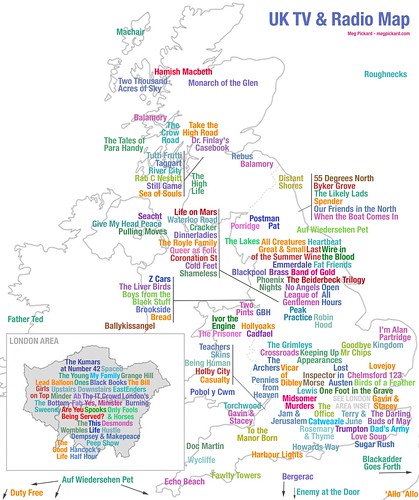Discussion is ongoing on yesterday’s post about protectionism and misguided “buy local” campaigns. I didn’t mention the “sustainability” side of that debate – which is probably valid. It doesn’t make sense for major grocery stores to ship produce from North Queensland to warehouses in Victoria then back to North Queensland for sale – at that point I will join the brotherhood of sustainability and cry foul (fowl if we’re talking about chickens…). I didn’t mention it because it’s not the problem I have with “buy local” campaigns – which is that they don’t do what they claim to do, namely “protect local jobs”.
Buying local works to protect Australian farmers. There’s no denying that. But the insidious campaigns stretch further than the farm gates But we have plenty of other primary producers whose cause is harmed by drops in demand for our resources overseas (which are in part due to drops in demand for all sorts of product on a global level – particularly from the US).
But that’s just rehashing the point I’d already made yesterday. In a slightly more coherent form.
There were a couple of points raised in the comments that are worth rehashing – particularly if you haven’t read them.
“Buying coffee grown in Australia at a local coffee store, rather than coffee grown in Costa Rica at Starbucks.” – Stuss.
Ahh, a subject close to my heart. The argument I’d make at this point is that Australian made doesn’t necessarily guarantee quality. You might feel nice paying three times the price you’d pay for foreign grown produce for local stuff – but in some cases you’re paying more for an inferior product. Coffee is a great example. If you want premium quality Australian coffee you’ve got to pay a premium price – and it still won’t be as good as stuff grown in the ideal conditions.
Her next point in a subsequent comment touches on the whole fair trade debate.
“There are ethical implications in buying goods made elsewhere. A big reason why companies shift that manufacturing off shore is that it can be done cheaper. Much, much cheaper. Which means the people doing the manufacturing aren’t getting a lot of money for the job. On one hand, it is good that some of these people are getting the employment at all. But on the other hand, sometimes these people are being exploited, and not receiving a fair wage. Or they are coming away from their villages and subsistence farming lifestyle to work in the factories and losing traditional skills. Which one outweighs the other?”
Those sweatshops employing and exploiting workers for the sake of fashion are a different matter, that’s an ethical question not a question of economics – and therefore not within the scope of this rant.
I don’t see how buying local and doing these overseas people out of the jobs they’ve won that are often literally putting food on the table – particularly when following through the argument using coffee farmers as an example – is doing the coffee farmer a service. In the case of agriculture – and particularly for argument sake the case of coffee – we’re not talking about farmers leaving subsistent living, we’re talking about third and fourth generation farmers who have been exporting coffee since coffee exporting began. Aussie Joe who decides to plant his coffee plantation in Atherton – where conditions aren’t as good as conditions elsewhere and thus the coffee flavour isn’t as rich – is doing a disservice both to the palate and to the global coffee market.
The fundamental economic principle of supply and demand means that if there’s an oversupply of a poor quality version of a particular variety of product and a largely uneducated audience the price of the good stuff either has to significantly alter or die out (or become an “exclusive” product for the rich and famous). Throwing in a “buy local” campaign artificially inflates the price of local coffee and punishes the foreign growers. It’s not a level playing field. And it’s an incentive for businesses that should probably fail. Because their product is inferior.
Amy made a similar point about rice but from a sustainability rather than quality standpoint in the comments on the last protectionism post…
“I don’t think it is okay to buy Australian grown rice, because rice is totally unsuited to our environment and therefore needs far more resources than an imported product.”
I wonder what the typical elements in the purchase equation are? You could no doubt express it as a funky Venn diagram – in fact I’m sure it’s already been done somewhere… but I’d say price, sustainability, ethics, and quality are all in the mix. Are there any others?










